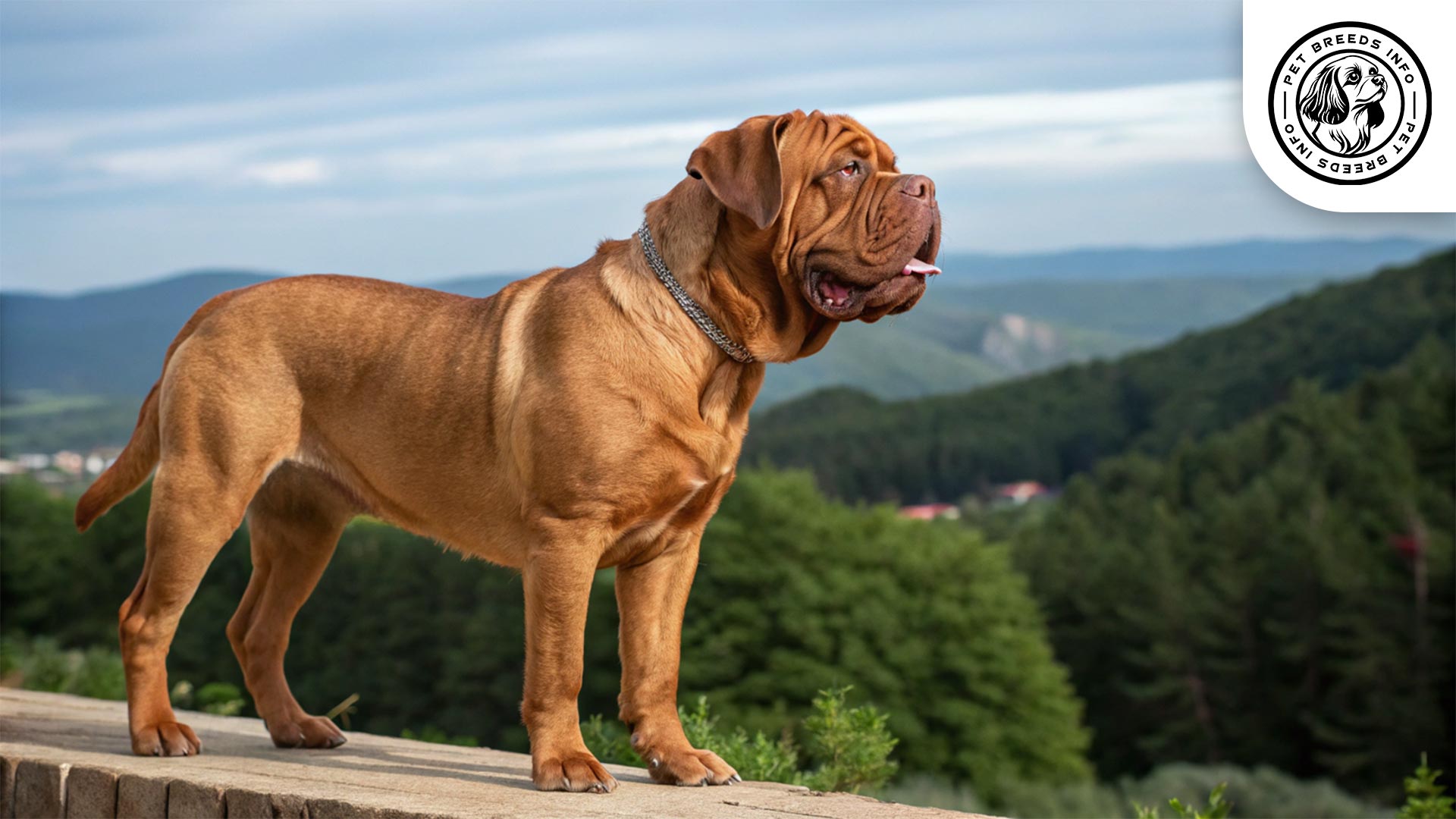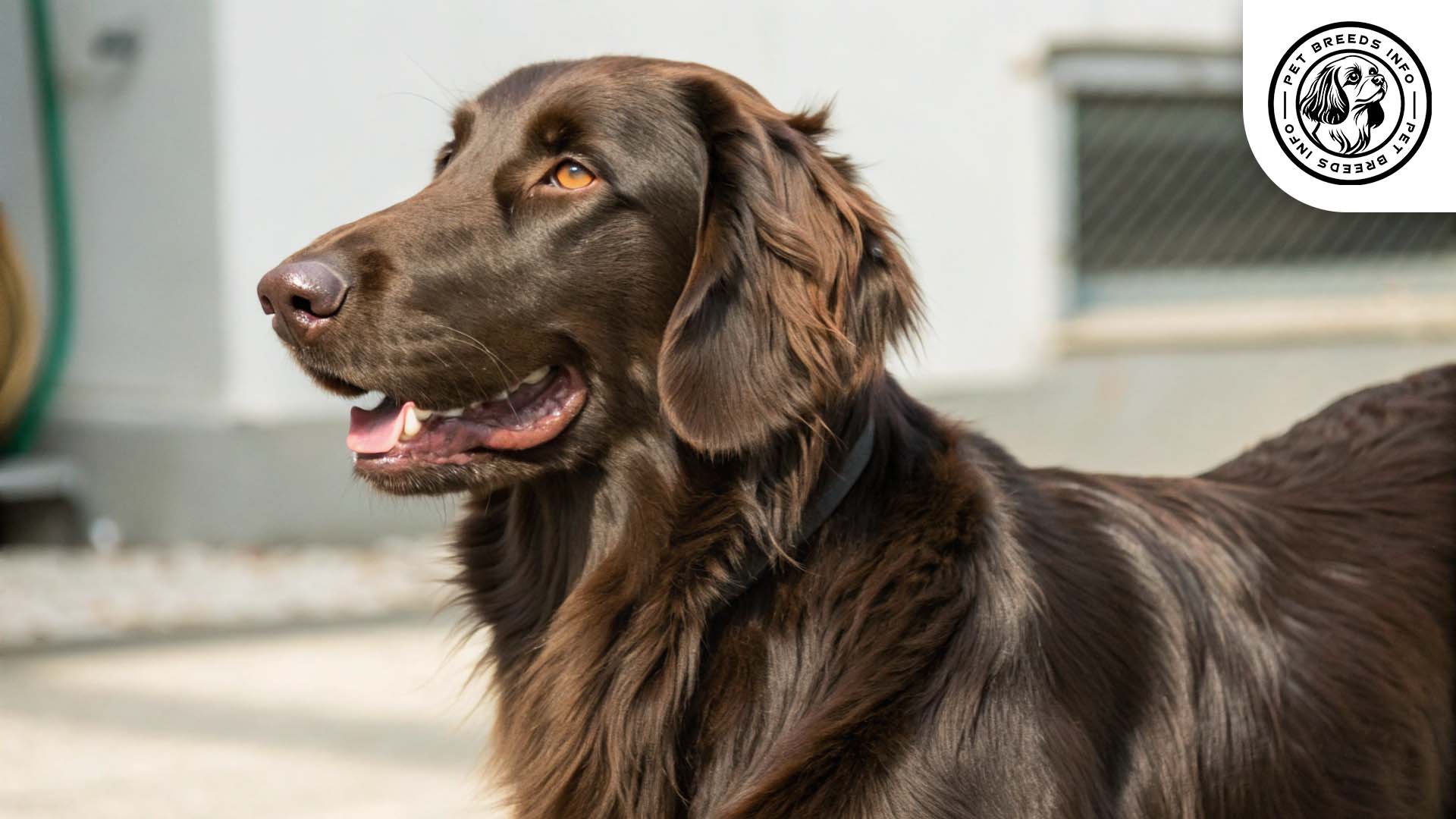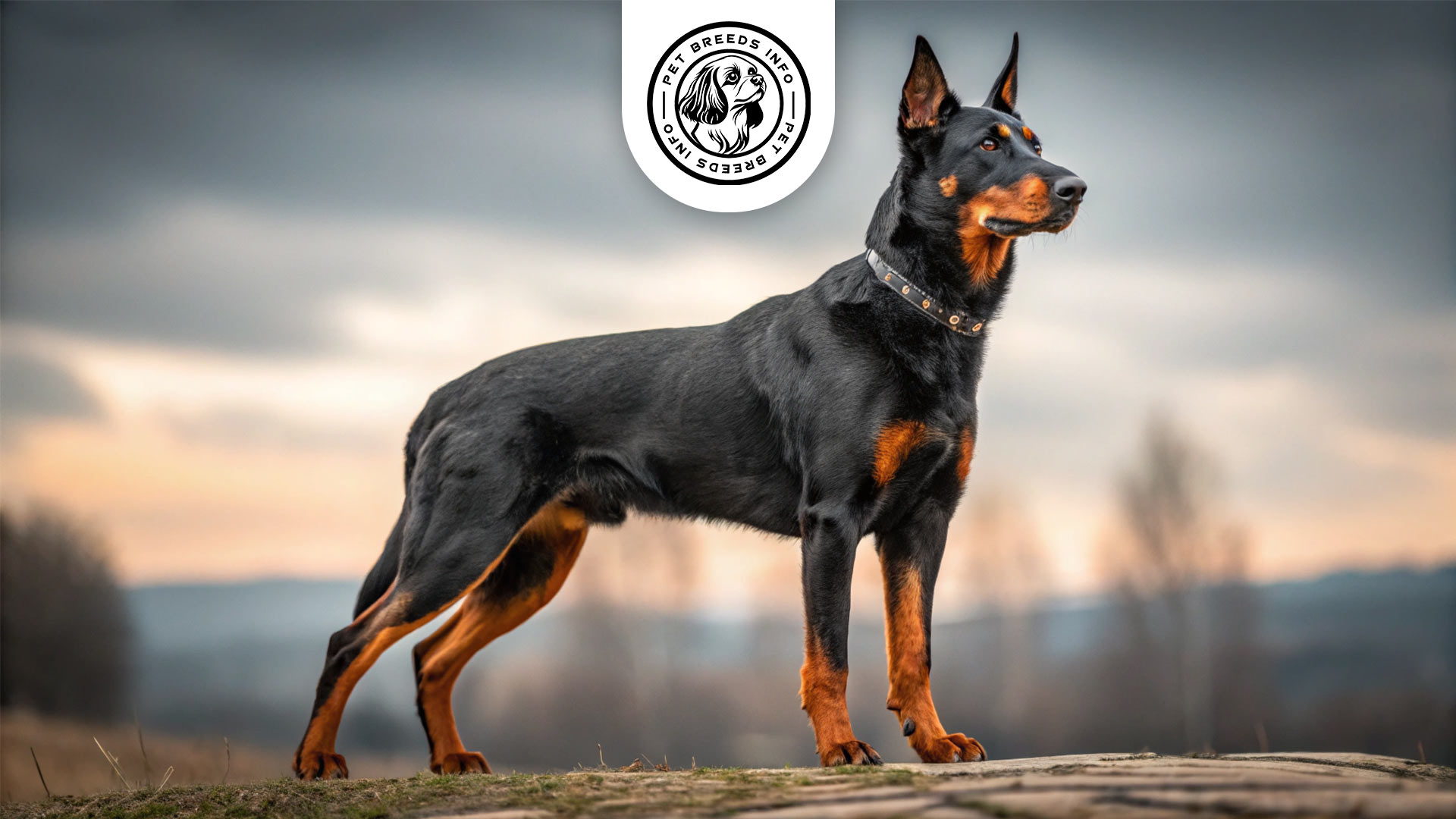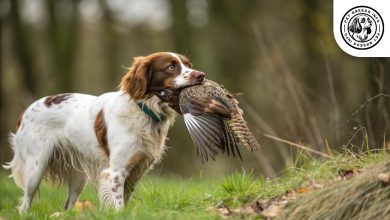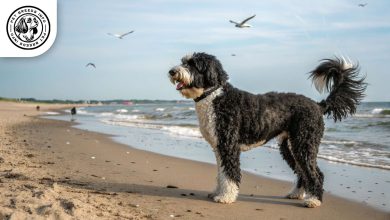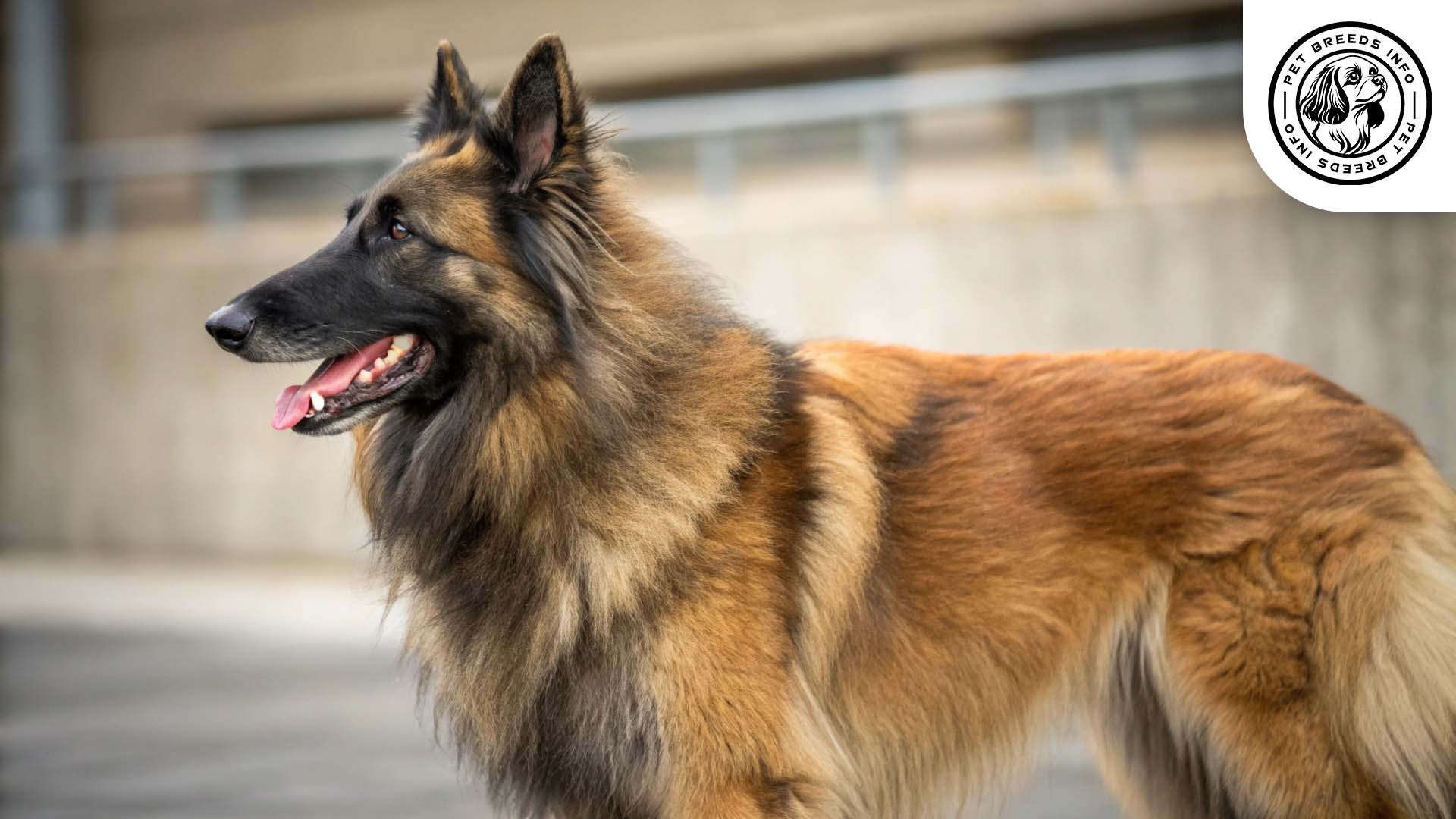Dogue de Bordeaux Dog Breed: Size, Price & Personality
General Introduction of the Breed
The Dogue de Bordeaux, also known as the French Mastiff, is a powerful and muscular breed that originated in France. This ancient breed has a history dating back to at least the 14th century and was primarily used for guarding property, hunting large game, and serving as a war dog.
Over time, the breed became a popular companion for French aristocrats and remained a loyal protector of homes and estates. Today, the Dogue de Bordeaux is known for its impressive stature, affectionate nature, and unwavering dedication to its family.
Table of Contents
| Weight | Males: 110-150 pounds Females: 99-120 pounds |
| Lifespan | 8-10 years |
| Diet | High-quality dry or wet dog food formulated for large breeds (or raw/natural). Portion control is important; feed 2-3 meals daily. |
| Care | Daily walks and moderate activity. Weekly brushing, baths as needed. Regular ear cleaning, nail trimming, and dental hygiene. Sensitive to heat. |
| Health | Prone to hip and elbow dysplasia, heart disease, respiratory issues (due to short muzzle). |
| Color | Various shades of fawn, ranging from light to deep mahogany. |
| Nature | Intelligent, loyal, gentle, affectionate, protective, good with family and children (with training), wary of strangers, can be independent. |
| Price | $1,500 to $5,000 (puppy), depending on pedigree, health certifications, and breeder reputation. |
Physical Characteristics
The Dogue de Bordeaux is a large, muscular breed with a stocky build and a broad head. Males typically weigh between 110-150 pounds and stand about 23-27 inches tall, while females are slightly smaller, weighing between 99-120 pounds and standing 23-26 inches tall.
The breed has a short, fine coat that comes in various shades of fawn, ranging from light to deep mahogany. The eyes are oval-shaped and can be hazel to dark brown, contributing to their expressive and alert appearance. The ears are small, set high, and slightly folded, while the tail is thick at the base and tapers toward the tip.
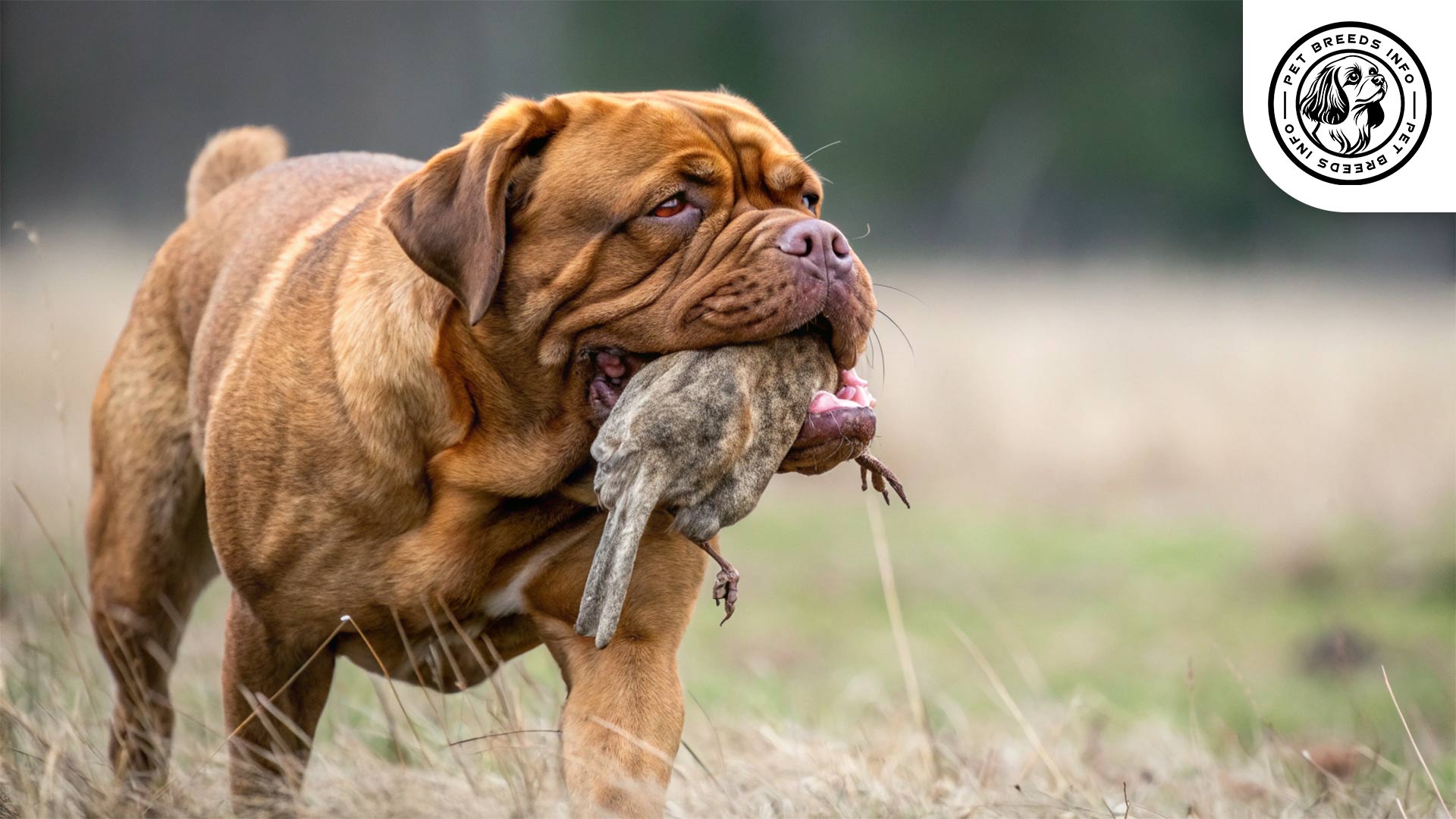
Distinctive features of the Dogue de Bordeaux include its wrinkled face, short muzzle, and large, powerful jaws, which give it a unique and imposing look.
Read More: Dandie Dinmont Terrier Dog
Personality and Temperament
The Dogue de Bordeaux is an intelligent and loyal breed that forms strong bonds with its family. Despite its imposing appearance, it is gentle, affectionate, and protective.
This breed has moderate energy levels and requires regular exercise but is not hyperactive. It thrives on companionship and enjoys spending time with its owners.
When properly trained and socialized, the Dogue de Bordeaux is good with children and can coexist with other pets, though early socialization is essential. Due to its protective instincts, it may be wary of strangers, making it an excellent guard dog.
The breed is sensitive to its environment and does best in a stable, loving home where it is treated as a valued family member.
Care and Maintenance Requirements
Daily walks and moderate activity are necessary to keep this breed healthy, but it does not require excessive exercise. A home with a yard is ideal, but it can adapt to apartment living if given enough physical activity.
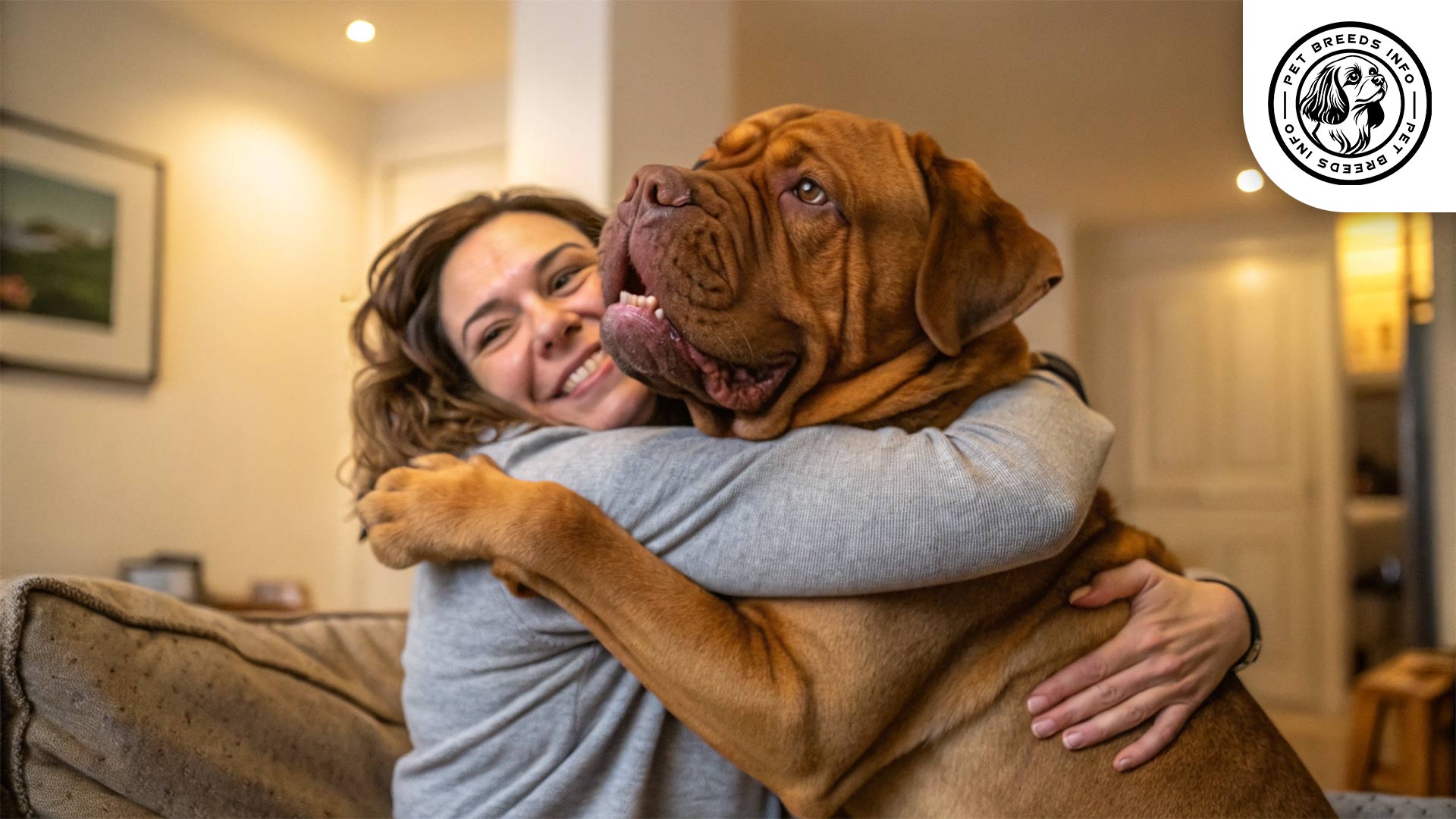
Grooming is relatively simple thanks to the breed’s short coat. Weekly brushing helps reduce shedding, and baths should be given as needed. Regular care should also include ear cleaning, nail trimming, and dental hygiene.
The Dogue de Bordeaux is sensitive to extreme temperatures, particularly heat. Avoid excessive exercise in hot weather and provide plenty of shade and water.
Diet and Nutrition
A well-balanced diet is essential for this large breed. High-quality dry or wet dog food formulated for large breeds is recommended, though some owners opt for a raw or natural diet.
Given its risk for obesity and joint issues, portion control is important. A Dogue de Bordeaux should be fed two to three meals a day rather than one large serving.
Avoid feeding chocolate, grapes, onions, and other toxic foods. Additionally, excessive consumption of fatty foods can lead to digestive issues.
Health and Common Medical Issues
The Dogue de Bordeaux is prone to certain genetic health conditions, including hip and elbow dysplasia, heart disease, and respiratory issues due to its short muzzle.
The breed has a relatively short lifespan of around 8-10 years. Regular veterinary check-ups, vaccinations, and preventive care are essential to maintaining good health.
Read More: Chinook Dog Breed
Training and Behavior Management
Training the Dogue de Bordeaux requires patience and consistency. The breed responds best to positive reinforcement techniques and early socialization.
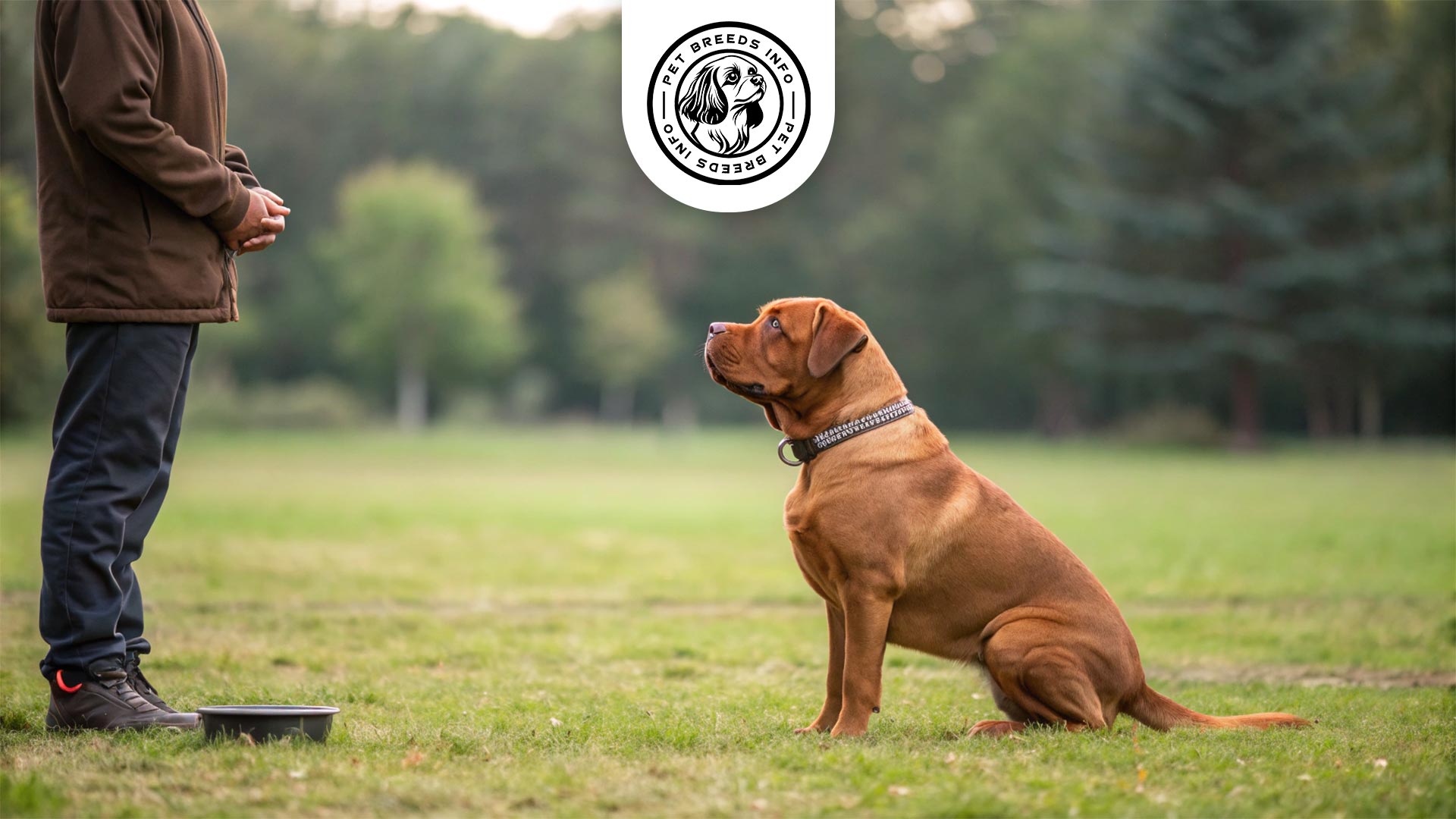
Basic obedience training should begin at an early age, focusing on commands such as sit, stay, and recall. Due to its strong personality, firm but gentle leadership is necessary.
Socialization with people and other animals from a young age helps encourage well-mannered behavior.
Interaction with Other Animals and Humans
This breed is affectionate toward its family and generally good with children when properly trained. However, supervision is recommended, especially with small children due to its large size.
The Dogue de Bordeaux can get along well with other pets, but early introductions and proper socialization are necessary. Due to its strong guarding instincts, it may take time to warm up to strangers.
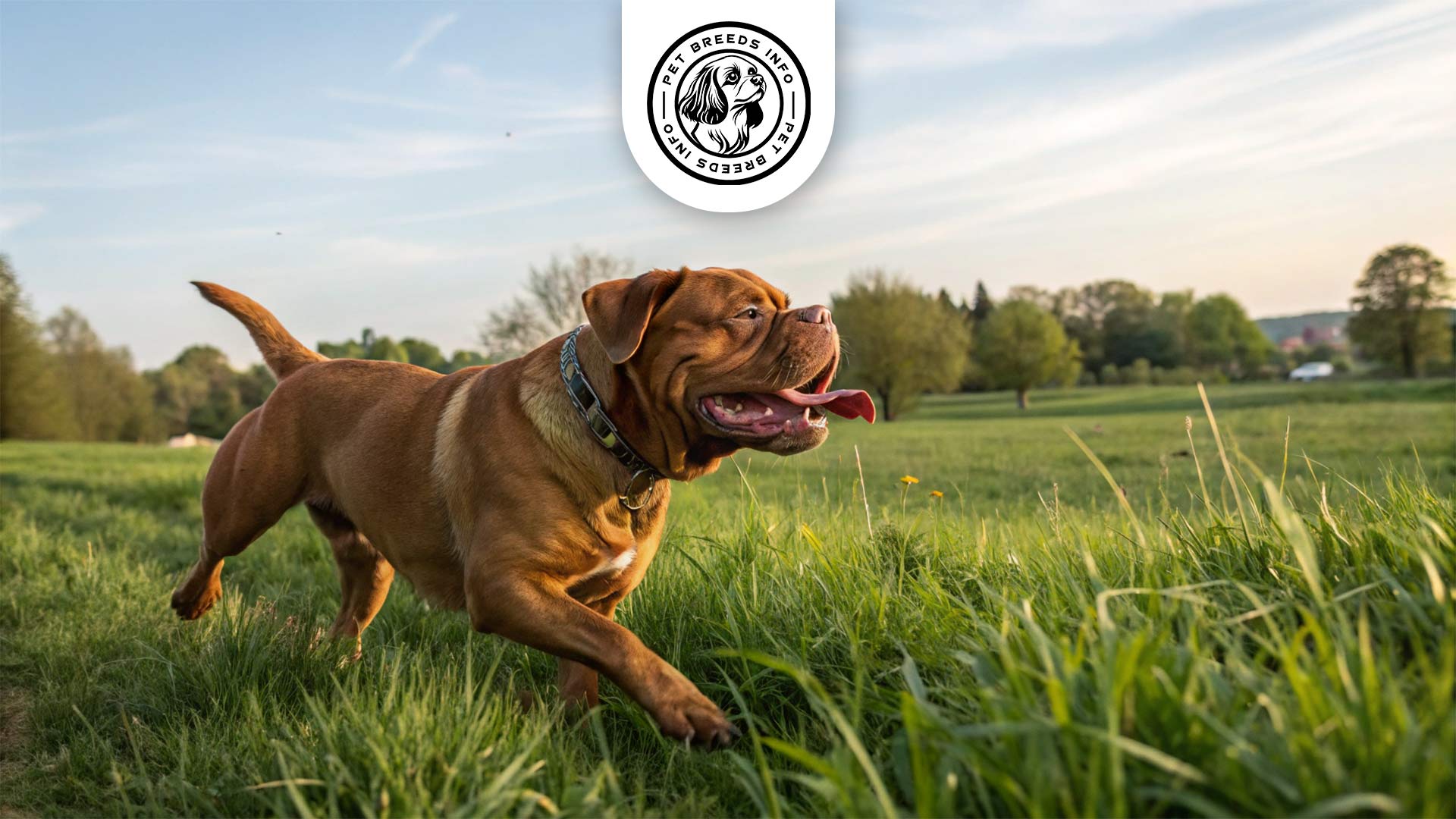
While devoted to its owner, it can be independent at times. However, it thrives best when it is part of a family environment and receives sufficient attention.
Price and Availability
The cost of a Dogue de Bordeaux puppy ranges between $1,500 to $5,000, depending on pedigree, health certifications, and breeder reputation.
When purchasing, it is essential to choose a reputable breeder who provides proper health screenings and ethical breeding practices. Adoption from shelters or breed-specific rescues is also a great option.
Conclusion and Final Thoughts
The Dogue de Bordeaux is a loyal, affectionate, and protective breed that thrives in a loving home with responsible owners. While it requires training, socialization, and care, it provides endless devotion and companionship.
Ideal for families or individuals seeking a devoted guardian, this breed requires space, attention, and commitment. Proper diet, healthcare, and exercise are crucial to maintaining its well-being.
Potential owners should carefully consider their lifestyle before choosing this breed, ensuring they can meet its physical and emotional needs.
Read More: Coton de Tulear Dog
FAQ
What is the typical temperament of a Dogue de Bordeaux?
Loyal, gentle, affectionate, and protective. They are intelligent and enjoy being with their family.
How much exercise does a Dogue de Bordeaux need?
Moderate daily exercise like walks is sufficient. They don’t require excessive activity.
Are Dogue de Bordeaux dogs good with children?
Yes, with proper training and early socialization. Supervision is advised due to their size.
What are some common health issues for Dogue de Bordeaux dogs?
Hip/elbow dysplasia, heart problems, and respiratory issues are common. They have a shorter lifespan of 8-10 years.
